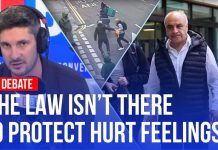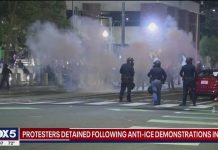
When technology and civil liberties clash, who wins—the safety of the many or the rights of the few?
At a Glance
- Facial recognition technology (FRT) remains controversial in New York City.
- Legal challenges persist over private venues using FRT for security.
- Moratoriums and bans on FRT raise questions about public safety and privacy.
- Debates continue over balancing security needs with civil liberties.
The Ongoing Debate Over Facial Recognition Technology
Facial recognition technology (FRT) has been a hotbed of controversy, especially in a city as diverse and complex as New York. Despite its potential for enhancing security and aiding law enforcement, this technology has sparked widespread debates over privacy and civil liberties. The city’s use of FRT is patchy, with moratoriums in some areas, such as schools, while private venues continue to deploy it, often prompting legal challenges and public outcry.
The crux of the issue lies in the balance between public safety and personal privacy. On one hand, FRT can be a potent tool for law enforcement, potentially exonerating the innocent or catching elusive criminals. On the other hand, its misuse and the potential for error—such as the case of Zuhdi Ahmed, where charges were dropped due to FRT misidentification—highlight the technology’s fallibility and the consequences of over-reliance on it.
Legal and Public Scrutiny Intensifies
Legal battles over the use of FRT are ongoing. Recent court decisions have seen venues like Madison Square Garden defending their use of FRT, arguing it’s necessary for security and business operations. However, these practices have drawn the ire of civil liberties groups and prompted investigations by New York State Attorney General Letitia James, who examines whether such uses violate privacy laws.
In May 2024, MSG’s motion to dismiss a lawsuit over FRT use was granted, yet the ruling did little to quell the ongoing public criticism and scrutiny. Civil liberties advocates, including the NYCLU and ACLU, argue that FRT is inherently biased, disproportionately misidentifying marginalized groups and threatening civil rights.
Public and Political Implications
The implications of FRT use—and misuse—are significant. In the short term, businesses and law enforcement face legal uncertainty, and public trust in FRT is shaky at best. Misidentifications, such as in the Zuhdi Ahmed case, amplify public distrust and fuel the call for stricter regulations or outright bans.
Long-term, the debate could lead to policy shifts that either tighten restrictions on FRT or establish more regulated frameworks to ensure transparency and accountability. Policymakers face the challenging task of crafting legislation that addresses privacy concerns while allowing law enforcement to leverage new technologies effectively.
Weighing Security Against Civil Liberties
The debate surrounding FRT in New York City mirrors broader national and global conversations about technology, privacy, and civil rights. While some argue for its necessity in modern security frameworks, others caution against the potential for abuse and the erosion of personal freedoms.
For businesses and law enforcement, the challenge lies in navigating the legal landscape while maintaining public trust. For civil liberties groups, the focus remains on advocating for privacy protections and highlighting the risks posed by unchecked technological surveillance.
Sources:
New York State Bar Association
Wikipedia on Facial Recognition Systems
Cambridge Handbook of Facial Recognition
Government Info on Facial Recognition
















